
All photos: Donegal Browne
The fruit of this vine is a real bird crowd pleaser. This week everything form Downy Woodpeckers to Catbirds to myriad species of Sparrows have gobbled them down.
When I first saw this plant and asked after it, I was told by an older gardener of the neighborhood that it was called Sawtooth or Saw-tooth Ivy. On close inspection, it really looks a heck of a lot like some kind of a grape vine.
I popped one in my mouth---not to eat---just to taste. Well, quite subtle with big seeds. Does it taste slightly grape-ish? Or is it just the power of suggestion?
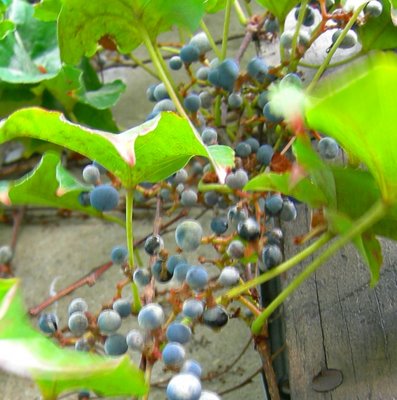
On the vine, first an investigation of the fruit in the search for just what to call this huge wall covering clambering stemmed vine.
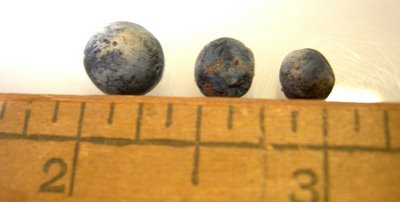
In inches
These fruits have a glaucous bloom. That haze also found on the skin of plums or on the canes of Blackberries. I've always wondered what advantage it might bring to a plant and so far I've not even found any theories.
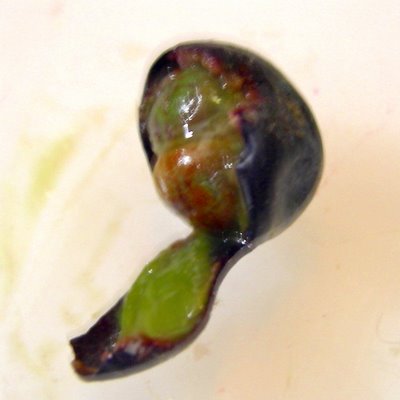
Parts of the fruit.
I realized after exposing the different parts that I couldn't remember their names so here's a refresher course.
Exocarp: The outer purple layer, "the skin".
Mericarp: The green part, the juicy pulp portion.
Endocarp: The hard covering inside which the actual seed resides.
It turns out in this case that a larger fruit doesn't just mean a thicker mericarp, a bigger single "seed", or more moisture.
Large fruit= 3 seeds. Medium fruit= 2 seeds. Small fruit= 1 seed.
AND THE PHONE RINGS
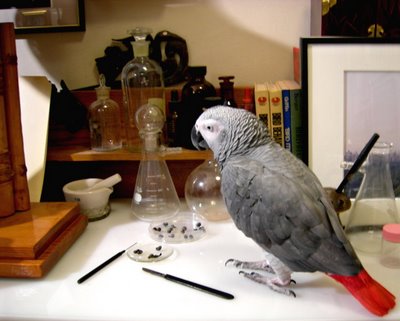
Berries? Grapes? Could be good.
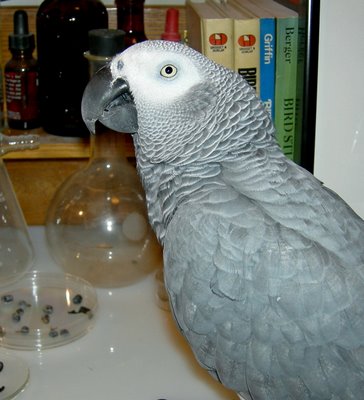
Ahhh.....I was just looking. Honest...
2 comments:
Your vine is commonly known as boston ivy(parthenocissus tricuspidata). Your
African Grey parrot is one pretty boy.
He looks in top condition, no stress, very happy. Congratulations.
Thank you for the ID, you're a great help.
And yes, Quicksilver, agrees that he's an extremely pretty boy. Thank you. We love him dearly. He was a rescue at a very young age and has done very well. He speaks in context. And is currently behind me running quietly through his extensive vocabulary of words and sounds. Which is a good thing, for as with small human children, similar to the level he will perennially remain, if you can hear him, you know his insatiable curiousity and need to see what happens "IF" isn't getting him into trouble.
And a word to other readers who may not have your eye of experience, I would be remiss without adding the caveat, for those tempted to share their lives with one of these tame members of a wild species. Think very carefully first. On one hand your life can be immensely enriched but on the other you will be taking on the expensive time consuming lifetime responsibility of caring for a creature with the intelligence of a five year old, the emotions of a two year old, a mind of his or her own that doesn't cognate in quite the way a humans does, cannot be continually confined, and comes in a neat feathered package that includes wings and a very sharp beak.
Post a Comment